Overview
Name: Judicial Academy of Vietnam (JAV)
Location: Located in Hanoi, the capital of Vietnam, the specific address is No. 55, Tran Phu Street, Hoan Kiem District, Hanoi.
Introduction: The Judicial Academy of Vietnam is a higher education institution with legal education, judicial training and legal research as its main directions. The school is committed to cultivating high-quality judges, prosecutors and other legal professionals with professional knowledge and practical ability, and contributing to Vietnam's judicial system and social rule of law. The school enjoys a good reputation in the fields of legal education, judicial training, etc., and is one of Vietnam's important legal education and research institutions.
Campus and number of students
Campus: The main campus of the school is located in Hoan Kiem District, Hanoi. The campus environment is beautiful and the facilities are complete, including modern teaching buildings, classrooms, libraries, mock courts, etc.
Number of students: The school currently has about 1,000 students, including undergraduates, masters and doctoral students, as well as various short-term training students.
Educational philosophy
The school adheres to the educational philosophy of "science, innovation, and practice", focuses on cultivating students' practical operation ability and innovation ability, encourages students to actively participate in legal practice and scientific research projects, and improves their comprehensive quality.
Disciplines and departments
The Court College has multiple colleges and departments, covering the following major disciplines:
School of Law: Research civil law, criminal law, commercial law, international law, etc., and cultivate legal professionals.
Judicial Training College: Research judicial practice, trial skills, legal procedures, etc., and cultivate judges and prosecutors.
School of Legal Research: Research legal theory, legal history, comparative law, etc., and cultivate legal research talents.
School of Legal Education: Research legal education methods, legal professional ethics, etc., and cultivate legal education talents.
School of International and Comparative Law: Research international law, foreign law, comparative law, etc., and cultivate international and comparative law professionals.
School of Legal Practice: Research legal practice, lawyer skills, legal document writing, etc., and cultivate legal practitioners.
Course Setting
Undergraduate courses: Provide undergraduate courses in law, judicial practice, legal research, etc.
Postgraduate courses: Master and doctoral courses in law, judicial practice, legal research, etc. are provided.
Short-term training: Various short-term training courses are provided for in-service judges, prosecutors and legal practitioners, such as judicial practice, legal updates, trial skills, etc.
Practice and internship
Internship opportunities: The school cooperates with courts, procuratorates and other legal institutions at all levels to provide students with internship opportunities to help students apply theoretical knowledge to practical work.
Moot court: The school has a moot court for students to practice trial and defense in a simulated environment.
Research projects: Students have the opportunity to participate in the school's scientific research projects and conduct cutting-edge legal research with their mentors.
Ranking
The Court College enjoys a very high reputation in the field of legal education and judicial training in Vietnam, and has been rated as one of the top related institutions in Vietnam many times. Although international rankings may not be easy to obtain, it is in a leading position among similar institutions in the country.
Fees
Tuition fees: The tuition fees for local Vietnamese students per semester are about 2 million to 4 million Vietnamese dong (about RMB 600 to 1,200). The tuition fees for international students will be higher, and the specific amount needs to be consulted with the school official.
Other expenses: including accommodation fees, textbook fees, living expenses, etc. The specific fees vary depending on individual circumstances.
Campus Environment
Facilities: The school has modern teaching buildings, classrooms, libraries, moot courts, etc. There are also multiple learning and leisure areas on campus, providing a good learning and living environment.
Accommodation: The school provides dormitories for out-of-town and international students. The dormitory conditions are good and equipped with basic living facilities.
Notes
Language requirements: Some courses may be taught in English, but most courses are still taught in Vietnamese. International students need to have a certain foundation in Vietnamese.
Application materials: Prepare complete application documents, including transcripts, letters of recommendation, personal statements, etc.
Visas and insurance: Make sure to handle the visa procedures required for studying in Vietnam and purchase appropriate insurance.
Cultural adaptation: Understand the cultural customs of Vietnam in order to better integrate into local life.
-
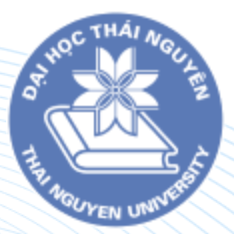
Đại học Thái Nguyên,Thai Nguyen University
-

Đại học Quốc gia Hà Nội,Vietnam National University, Hanoi
-
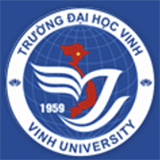
Trường Đại học Vinh,Vinh University
-
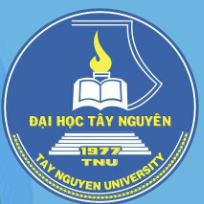
Trường Đại học Tây Nguyên,Tay Nguyen University
-
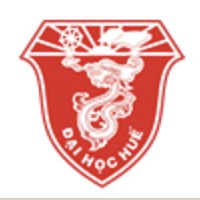
Đại học Huế,Hue University
-

Đại học Quốc gia Thành phố Hồ Chí Minh,Ho Chi Minh City National University
-

Trường Đại học Cần Thơ,Can Tho University,CTU
-
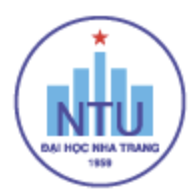
Trường Đại học Nha Trang,Nha Trang University
-
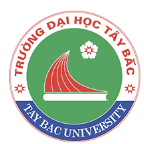
Trường Đại học Tây Bắc, Tay Bac University
-

Trường Đại học Công nghệ Giao thông Vận tải,University of Transport Technology
-

Mesoamerican University
-

Istmo University
-

Mariano Galvez University of Guatemala
-

Regional University of Guatemala
-

Galileo University
-

Francisco Marroquín University
-

Rafael Landívar University
-

University of the Valley of Guatemala
-

University of San Carlos of Guatemala
-

Technological Institute of Tlaxcala Plateau
-

Golfo University
-

Technological University of South Sonora
-

Technological University of Huejotzingo
-

Tizimín Institute of Technology
-

Chilpancingo Institute of Technology

